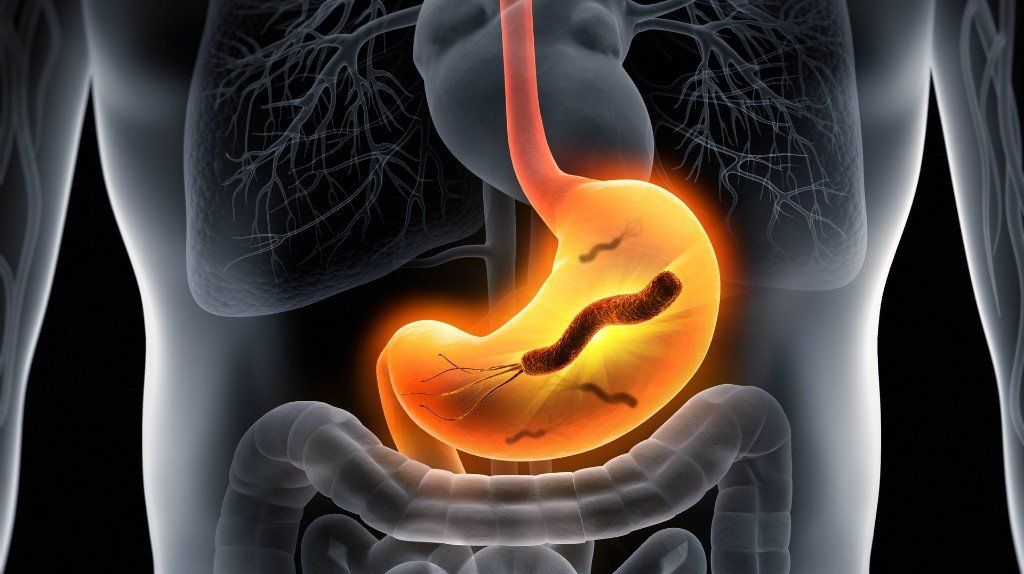H. PYLORI IN NORTHWEST FLORIDA
Helicobacter pylori is an infection that develops in the stomach. This infection can cause peptic ulcers. While symptoms of this infection or infrequent, or most often unnoticed, this infection can be effectively diagnosed and treated.
HAVE QUESTIONS ABOUT H. PYLORI?
-
What are the Symptoms of H. Pylori?
It is common for people carrying an H.pylori infection to never show a symptom or sign. However, if one is suffering from H.pylori they may experience:
- Nausea
- Frequent burping
- Bloating
- Abdominal pain
- Bloating
- Loss of appetite
-
What Health Complications Can Arise from a Helicobacter Pylori Infection?
There are a few health complications that H.pylori can cause or exacerbate. Inflammation of the stomach’s lining is a common effect that causes gastritis (swelling), and irritation. H.pylori can also cause enough damage to the stomach lining that ulcers can develop in the lining of the small intestine and stomach. Ulcers affect about 10% of people suffering from an H.pylori infection. Lastly, the chances of developing stomach cancer are increased with H.pylori.
-
What Risk Factors Can Increase Your Change of Developing H. Pylori?
A Helicobacter pylori infection is often developed during childhood, however, there are certain lifestyle factors that can increase the chance of exposure and development. Crowded conditions, a lack of reliable, clean water, and living with someone who already has an H.pylori infection can make a person more susceptible to experiencing this gastrointestinal condition.
No solid food can be eaten, and drinks are limited to clear liquids like water, tea, or coffee without cream and no carbonated beverages. A laxative may also be recommended the night before a colonoscopy.
-
How is Helicobacter Pylori Diagnosed?
Helicobacter pylori can be diagnosed through a variety of different procedures and tests. These tests will need to be repeated after any treatment method to ensure that the bacteria is completely gone. A breath test, or a urea breath test, involves the swallowing of a pill, pudding, or liquid that contains carbon molecules. An H.pylori infection will release this carbon when contact is made with the bacteria. As the carbon is absorbed it will be released as you exhale.
Antigen stool tests and PCR stool tests are also commonly used to detect H.pylori. An antigen test is the most common and detects antigens that are associated with H.pylori infections. A PCR, or polymerase chain reaction test not only identifies the existence of H.pylori, but also any mutations that can cause an antibiotic resistance.
Lastly, a scope test, or upper endoscopy exam can help identify gastritis, peptic ulcers, and other conditions caused by H.pylori. This procedure uses a tiny camera that is inserted down the throat into the esophagus and stomach to monitor the duodenum or top of the intestine. This examination can also help to determine which types of antibiotics to prescribe.
-
How is H. Pylori Treated?
A typical treatment for H. Pylori utilizes two antibiotics simultaneously. Using multiple medications prevents the bacteria from becoming resistant to a certain one. There are also medications that can be used to help your stomach heal from this condition. Bismuth subsalicylate, commonly known as Pepto-Bismol, helps to coat the stomach and protect it from acid. PPIs, or proton pump inhibitors prevent your stomach from creating stomach acid. Third, H-2 histamine blockers are used if PPIs can’t be administered. H-2 blockers prevent histamine, which causes acid production.
READY TO SCHEDULE AN APPOINTMENT?
CONTACT
850-763-5409
ADDRESSES
4 LOCATIONS
204 E 19th Street, B, Panama City
12216 Panama City Beach Pkwy, D, Panama City Beach
4295 3rd Ave, Marianna
101 Good Morning St., 109B, Port St. Joe
Subscribe to our newsletter:
subscribe to our newsletter
We will get back to you as soon as possible.
Please try again later.

